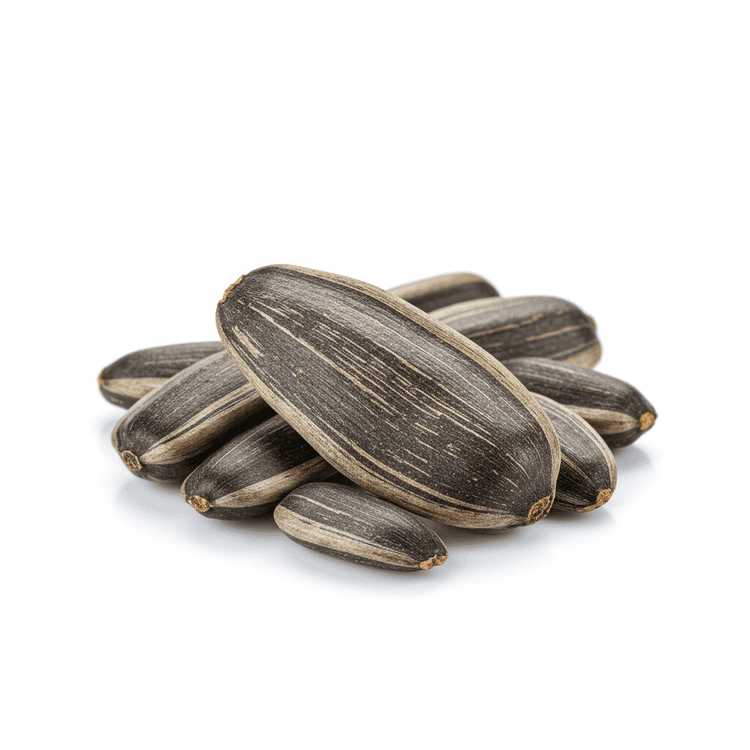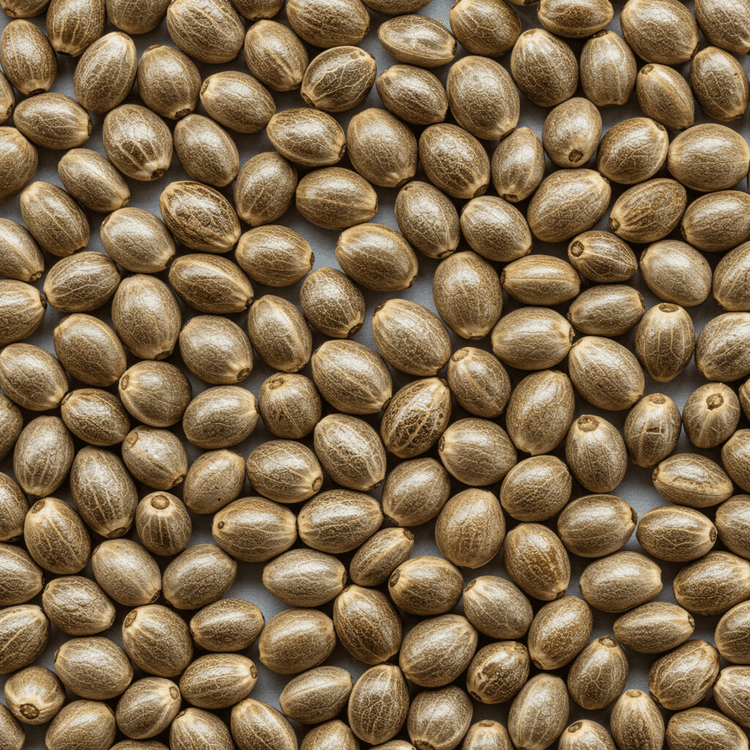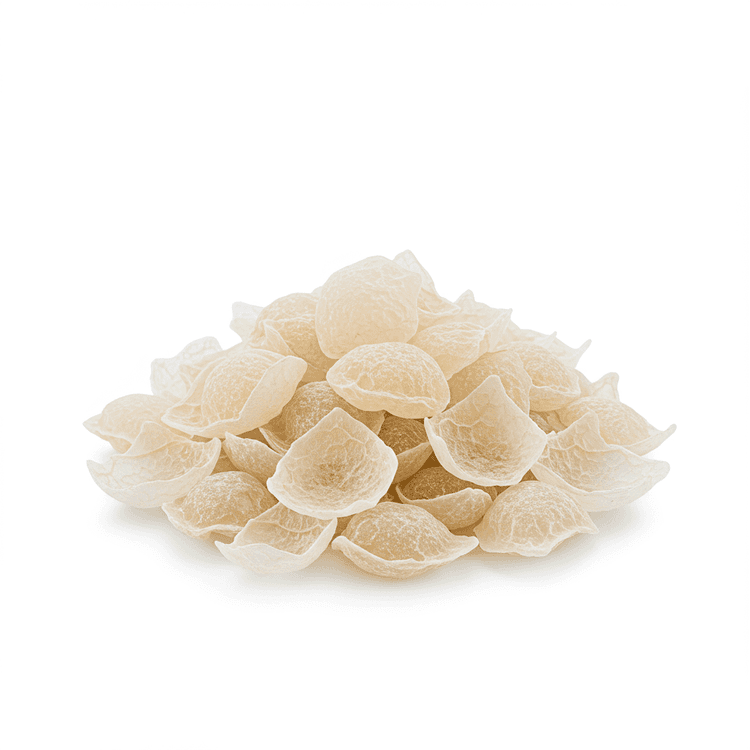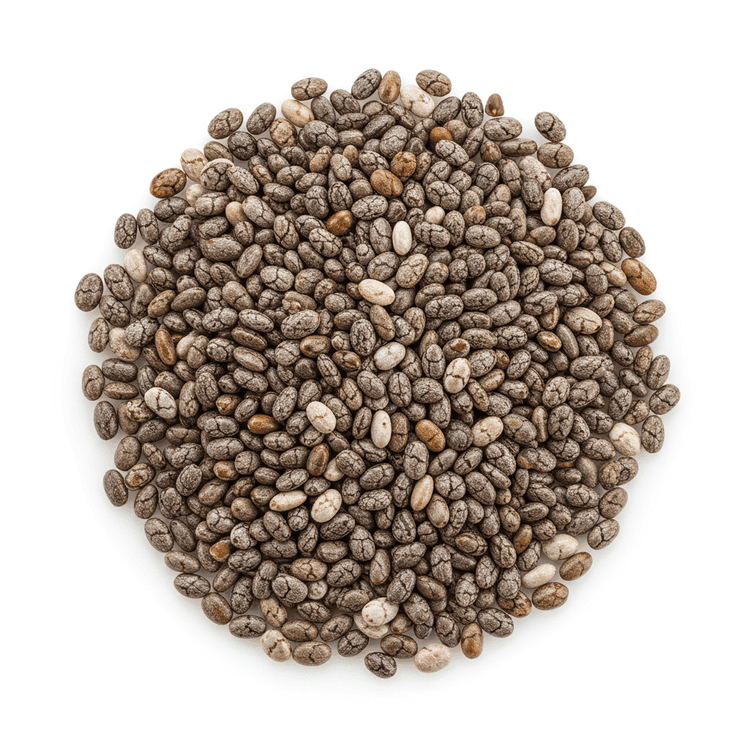
Flax
Flax seeds are small, flat, and oval-shaped seeds known for their nutty and slightly earthy flavor. They come in two main varieties: brown and golden, both offering similar nutritional benefits. Whole flax seeds have a smooth, hard exterior, while ground flaxseed boasts a soft, flour-like texture. These versatile seeds are a powerhouse of nutrients, prized for their high fiber content, omega-3 fatty acids, and lignans, making them a popular addition to healthy diets. Looking for natural sources of fiber or plant-based omega-3s? Consider adding flax seeds to your pantry!
Common Uses
- Ground flaxseed is frequently used as an egg replacement in vegan baking due to its binding properties when mixed with water, creating a similar texture to eggs in recipes like muffins and cookies. This is helpful if you need to make a vegan recipe or if you have an egg allergy.
- Flax seeds can be added to smoothies and yogurt for a boost of fiber and omega-3 fatty acids, enhancing the nutritional profile of your breakfast or snack.
- Sprinkle whole or ground flax seeds on top of salads, oatmeal, or cereal to add a subtle nutty flavor and a satisfying crunch.
- Flaxseed meal can be incorporated into homemade bread, muffins, and pancake batters, adding moisture and a slightly nutty taste, enriching the texture and nutritional value.
- Use flaxseed oil as a dressing for salads or cooked vegetables, taking advantage of its delicate flavor and high omega-3 content; however, avoid high-heat cooking with flaxseed oil, as it can degrade its beneficial properties.
- Try using flaxseed as a coating for fish or chicken by mixing ground flaxseed with breadcrumbs and spices, creating a crispy and nutritious crust when baked or pan-fried.
Nutrition (per serving)
Nutrition (per serving)
Calories
534.0kcal (26.7%)
Protein
18.3g (36.6%)
Carbs
28.9g (10.51%)
Sugars
1.6g (3.2%)
Healthy Fat
60.0g
Unhealthy Fat
3.8g
% Daily Value based on a 2000 calorie diet
Nutrition (per serving)
Calories
534.0kcal (26.7%)
Protein
18.3g (36.6%)
Carbs
28.9g (10.51%)
Sugars
1.6g (3.2%)
Healthy Fat
60.0g
Unhealthy Fat
3.8g
% Daily Value based on a 2000 calorie diet
Health Benefits
- Rich in omega-3 fatty acids, promoting heart health and reducing inflammation.
- High in fiber, aiding digestion, promoting satiety, and supporting weight management.
- Contains lignans, which have antioxidant and potential hormone-balancing properties.
- May help lower cholesterol levels and improve blood sugar control.
- A good source of plant-based protein and essential minerals like magnesium and manganese.
Chefadora AI is here.
Experience smarter, stress-free cooking.
Storage Tips
Flax seeds should be stored in an airtight container in a cool, dark, and dry place to maintain freshness. Ground flaxseed is more susceptible to oxidation and should be stored in the refrigerator or freezer to extend its shelf life. Whole flax seeds can be stored at room temperature for up to a year, while ground flaxseed is best used within a few months of grinding, or purchase date if pre-ground, for optimal nutritional benefits and flavor.
Marnirni-apinthi Building, Lot Fourteen,
North Terrace, Adelaide, South Australia, 5000
Australia




